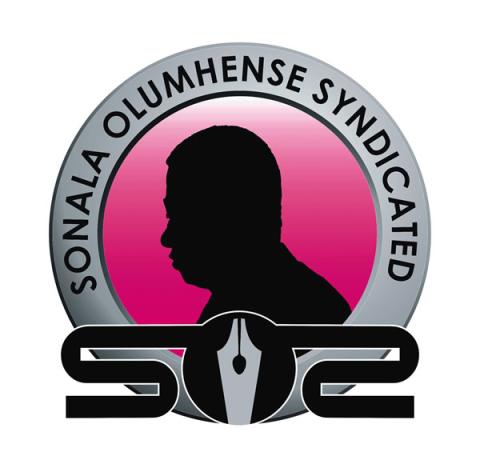

I never met Pius Adesanmi, the remarkable Nigerian icon who died in the Ethiopia Airlines Boeing 737 Max crash last weekend.
But we were part of an NVS editorial board for a while, and I read much of his writings. I knew his spirit. And his heart.
It is why I understand why his death has hit so many people so hard and so personally that there are remembrances being held in so many places around the world.
Sadly, those who lose the most by his passing, particularly Nigeria’s poor and exploited, did not know him. And ironically, those who gain the most will be the scavenging and ruthless social and political manipulators that were at the receiving end of his work, wit and wisdom.
It is good, then, that while death may not end the journey God begins for each human being, it does sever the consciousness of the departed with earthliness.
Otherwise imagine how outraged Adesanmi might have been upon discovering that President Muhammadu Buhari, who didn’t know he existed while he existed, described him and Ambassador Abiodun Bashua, another Nigerian who died in the crash, as “distinguished Nigerians who did the nation proud in their professional endeavors.”
Did Nigeria proud?
I pay my respects to Mr. Bashua, an accomplished diplomat, and condole his family and friends.
But Adesanmi cannot be thought of or remembered in the same way. As an intellectual, he was a champion of excellence, a currency that is admired and widely-sought in much of the world.
But while he was a scholar of reputable standards and achievement, it is the quality of his character and his voice that brought him celebrity in Nigeria.
The irony is that in his tribute, Buhari did not—could not—acknowledge that side of the man. Responding also, Senate President Bukola Saraki also said he did not know about Adesanmi but read some of his articles last week when the explosive impact of his death consumed the country.
This is important. Nigeria has a lot of frontline professionals in many fields within and outside her borders. Few, however, have either the inclination, commitment or talent to step outside their comfort zone and open their voices on behalf of right over wrong.
Those who do are dismissed as people who complain because they have not been given a place at the table. Translation: every Nigerian is a thief.
But Adesanmi was a reminder that there are people who do not want a part of any dirty buffet; people who believe there is enough for all, particularly if the best and most able are allowed opportunities that should go to the best, not the best-connected. He hoped for, and yearned for, and campaigned for a Nigeria that would rise to its potential.
The trouble is that nobody can do that without identifying the factors and people that are responsible for her failures. But Nigerian power-wielders hate to be so identified, let alone challenged. It has become our character and history as a people: Obafemi Awolowo was in his time and prime the best-qualified for national leadership, but he would not get it. Tai Solarin died screaming for social justice, as did Gani Fawehinmi.
Sometimes, we even go abroad to advertise our disdain for quality. Appearing before the Editorial Board of the New York Times in the late 1980s at the peak of his powers, Tom Ikimi, who was Sani Abacha’s Minister for Foreign Affairs, arrogantly dismissed the worth and work of Wole Soyinka.
Remember, Soyinka had just won the Nobel Prize. “Anybody can win a Nobel Prize!” Ikimi thundered at the astonished journalists.
They walked out on him.
In 2004, when Chinua Achebe rejected the award of a National Honour because of the sordid record of Olusegun Obasanjo’s government, particularly in Anambra State, government spokesman Femi Fani-Kayode offered him this insult: "If you feel that your country does not deserve to honour you, then we believe you certainly do not deserve your country."
Nigerian leaders resent and reject the logic of excellence and performance. You worship them with presents and praises. They love the language of such people as the delegation of so-called non-career ambassadors who visited Buhari a few days ago.
They were led by a man called Ashimiyu Olaniyi, who told Buhari with something of a straight face: “You are God-sent. You have always come on stage at the critical moments of our national history to right the wrongs of the past.’’
He told him that his election and re-election, “are divine interventions in the affairs of the country.”
Buhari had to have been glowing with joy, liars such as Olaniyi being priceless and memorable. Unlike writers, particularly irreverent critics such as Adesanmi who have no price tag.
Little wonder then, that Buhari, an unrepentant nepotist, never noticed Adesanmi. People like that are said to be merely “speaking grammar.” To have noticed would have been to acknowledge the writer’s abhorrence of the Nigerian leader’s world of self-worship and hypocrisy.
Of that world, I give Saraki credit for finding the courage to attend a memorial event for Adesanmi in Abuja last week, along with Senator Dino Melaye, although I do not believe any of them read enough of him to understand what he would consider to be penance or repatriation.
What would Adesanmi would have thought of the massive “Jail Bukola Saraki” signs seen on the side of London’s famous buses last week? It is unimportant that the images may have been photoshopped: London is Saraki’s real hometown, the one where he became a man and is thought to hold most of his wealth. That such signs were thought up and paid for either by Nigerians rich enough or creative enough says a lot about where the Nigeria struggle goes next.
It is significant that Buhari told the Olaniyi group last week his government is trying to reverse the mismanagement of his predecessors, “and with some luck, our best will be good enough.”
Luck.
Adesanmi would have been furious that while Buhari clearly had but fuzzy plans in 2015, in 2019 when he should be recognizing the critical importance of leadership, better policies and dogged implementation, he is throwing his hands into the air just as he threw eight meaningless fingers for the election.
Clearly, that means that Nigeria, post-Adesanmi, has a dark road ahead.
So what do we owe Adesanmi? There is always a lot of energy when a man of such moment passes; in Nigeria, sadly, we do not translate them to action. What meaningful memorial is there, today, of Achebe?
In my view, the most fitting tribute would reflect not only his prodigious energies but his advocacy of meritocracy and quality. Let us have an annual writing competition in his name and writing prizes at least in schools he attended, the objective being to unearth new literary gems and courageous voices from the bowels of the soil he cherished so much.
Adesanmi opened his heart and gave it away. In the end, that is all that matters, for it is by our hearts we live and die, and touch others.
• [email protected]
• @SonalaOlumhense